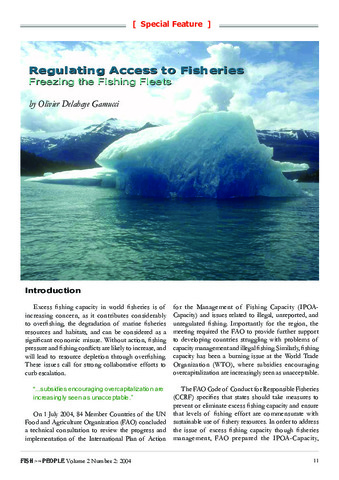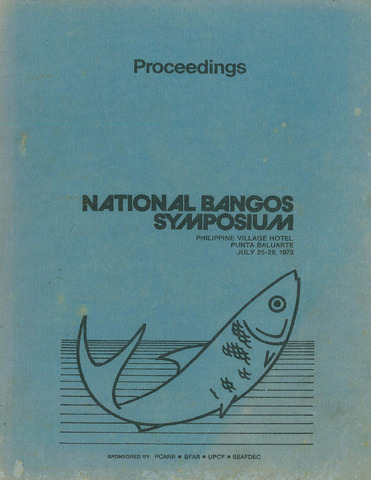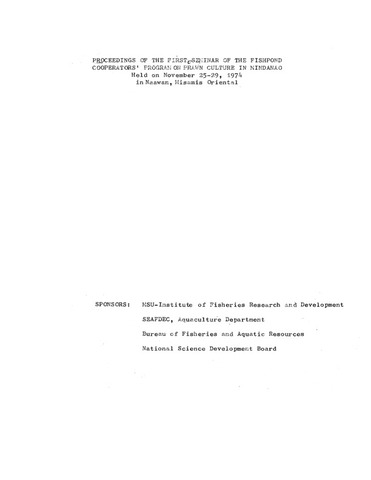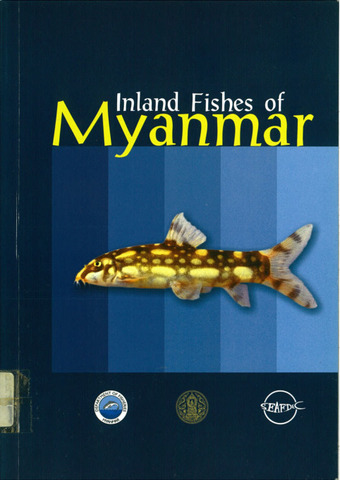Regulating access to fisheries freezing the fishing fleets
Share
Abstract
Excess fishing capacity in world fisheries is of increasing concern, as it contributes considerably to overfishing, the degradation of marine fisheries resources and habitats, and can be considered as a significant economic misuse. The FAO Code of Conduct for Responsible Fisheries specifies that States should take measures to prevent or eliminate excess fishing capacity and ensure that levels of fishing effort are commensurate with sustainable use of fishery resources. The main reason behind the worldwide overcapitalization in fisheries is unlimited access to the resources. A discussion is presented on fishing capacity, its control, and fishing rights. It is concluded that, although only a small first step toward the serious management of fishing capacity, the freezing of fishing capacity is urgently required to avoid further acceleration of the depletion of resources. Provided that both the relevant governmental agencies and local communities get proper assistance, and that the use of indicators to understand the status of each fishery on a case by case basis is promoted, these future management actions will definitely help to match fishing capacity with sustainable yields.
Suggested Citation
Gamucci, O. D. (2004). Regulating access to fisheries freezing the fishing fleets. Fish for the People , 2(2), 11-18. http://hdl.handle.net/20.500.12066/690
Collections
Related items
Showing items related by title, author, creator and subject.
-
Proceedings of the National Bangos Symposium, Philippine Village Hotel, Punta Baluarte, July 25-28 1975
Philippine Council for Agriculture and Resources Research (PCARR); Bureau of Fisheries and Aquatic Resources; University of the Philippines College of Fisheries; Southeast Asian Fisheries Development Center, Aquaculture Department (1975) -
Proceedings of the First Seminar of the Fishpond Cooperators' Program on Prawn Culture in Mindanao held on November 25-29, 1974 in Naawan, Misamis Oriental
MSU-Institute of Fisheries Research and Development; Southeast Asian Fisheries Development Center, Aquaculture Department; Bureau of Fisheries and Aquatic Resources; National Science Development Board (1974) -
Inland fishes of Myanmar
Vidthayanon, Chavalit; Termvidchakorn, Apichart; Pe, Myint (Secretariat, Southeast Asian Fisheries Development Center, 2005-12)This handbook of some inland fishes in Myanmar was based on a rapid field survey of SEAFDEC supported team and long term observation of the authors on common species and some taxa, obtained from the aquarium trade. We ...





